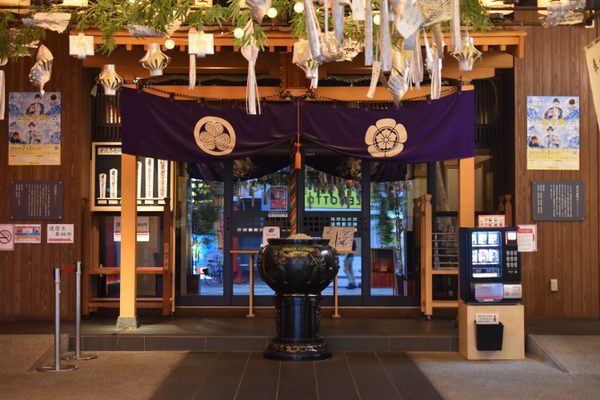Ōsu is one of the busiest shopping areas of Nagoya as well as one of the “big three” of Japan’s electric towns, considered a hub of otaku subculture alongside Akihabara and Nipponbashi. Consisting of several arcades, Ōsu’s heart lies in Kigakurin Banshōji, a Buddhist temple that’s more than it seems.
At first glance, Banshōji may not look much, as it blends in among the shops and restaurants, often unnoticed by tourists. Housed in a five-story concrete building since 1994, the temple is modernized, but its history goes back much further.
Founded in 1540 by Oda Nobuhide, the father of infamous warlord Nobunaga, the temple originally served as the Oda clan’s gravesite and was moved to its current location in 1610. It has since been also associated with the Tokugawa clan; Ieyasu, the first shogun of Edo (Tokyo), is believed to have been held here during his childhood days as a hostage of the Imagawa clan.
Though the name can be translated to “temple of ten thousand pine trees,” Banshōji donated much of its on-site forest—which was larger than a quarter of present-day Ōsu—to the neighborhood in 1912, paving the way for local development. The area soon became one of the busiest districts in Japan, until the bombing of Nagoya in 1945 burned it to the ground.
Today, the temple mainly consists of two smaller shrines located on street level: Migawari Fudō-son, dedicated to a stone statue of the protective deity Acalanatha, and Shirayuki Dakini-ten, a fox spirit who brings good fortune. Beside the concrete building, which houses temple offices and multiple mausolea, stands life-like statues of white dragons.
In addition to its history, Banshōji is also known for its automata, which were designed and installed in the 1980s-1990s and reenact two famous episodes from Oda Nobunaga’s life bihourly.

